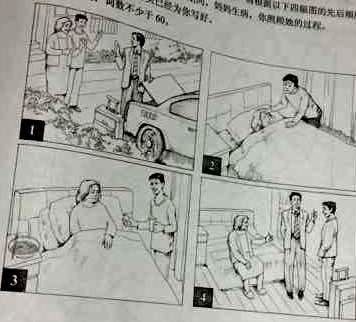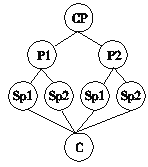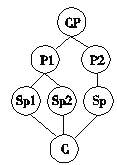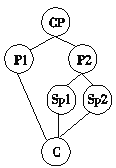题目内容
【题目】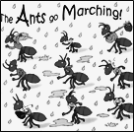
I used to think ants knew what they were doing. The ones marching across my kitchen counter looked so confident; I just figured they had a plan, knew where they were going and what needed to be done. How else could ants organize highways, build elaborate nests, launch impressive attacks, and do all the other things ants do?
Turns out I was wrong. Ants aren’t clever little engineers, architects, or soldiers after all --- at least not as individuals. When it comes to deciding what to do next, most ants don’t have a clue. “If you watch an ant try to accomplish something, you’ll be impressed by how awkward it is,” says Deborah M. Gordon, a biologist at Stanford University.
“Ants aren’t smart,” Gordon says. “Ant colonies are.” A colony can solve problems unthinkable for individual ants, such as finding the shortest path to the best food source, assigning workers to different tasks, or defending a territory from neighbors. As individuals, ants might be tiny dummies, but as colonies they respond quickly and effectively to their environment. They do it with something called collective intelligence.
Where this intelligence comes from raises an essential question in nature: How do the simple actions of individual ants add up to the complex behavior of a group? How do hundreds of honey-bees make a critical decision about their hive (蜂巢)if many of them disagree? The collective abilities of such animals --- one of which grasps the big picture, but each of which contributes to the group’s success --- seem miraculous even to the biologists who know them best. Yet during the past few decades, researchers have come up with fascinating insights.
【1】The author’s former false impression about ants is that he thought them to be _______.
A. smart B. awkward C. elaborate D. creative
【2】Which of the following is TRUE according to the passage?
A. Ants will function as a single body once a decision is made by the commander.
B. Ants are the only species which developed collective intelligence.
C. The ant queen plays a role in managing ant workers besides laying eggs.
D. An individual ant can’t comprehend the whole process of a big movement.
【3】The paragraph following the passage will most probably deal with _______.
A. where we can observe such fantastic behavior of ants
B. which is the leading ant in charge of the action
C. how the collective intelligence works
D. what inspiration can be drawn from the collective abilities
【答案】
【1】A
【2】D
【3】C
【解析】 本文属于科普类文章。我过去一直以为蚂蚁知道它们在做什么。其实蚂蚁个体并不聪明,聪明的是蚁群。单个蚂蚁百思不得其解的问题能轻易地被蚁群解决。他们是通过使用一种称为“群体智慧”来完成的。
【1】A
细节理解题。根据第一段内容可知,“I used to think ants knew what they were doing….”以前认为蚂蚁非常聪明,知道它们在做什么…….。而在第二段第一句“Turns out I was wrong. Ants aren’t clever little engineers, architects, or soldiers after all --- at least not as individuals” 结果证明我错了。蚂蚁毕竟不是聪明的小工程师、建筑师或士兵,至少不是作为个体的。分析这两段可知作者以前认为蚂蚁是聪明的,分析选项可知A符合题意,故选A。
【2】D
细节理解题。根据第三段““Ants aren’t smart,” Gordon says. “Ant colonies are.”A colony can solve problems unthinkable for individual ants,… As individuals, ants might be tiny dummies, They do it with something called collective intelligence.” . “蚂蚁并不聪明”, 蚁群才是”。单个蚂蚁百思不得其解的问题能轻易地被蚁群解决…他们是通过使用一种称为“群体智慧”来完成的。由此蚂蚁不是作为个体而是一个群体,可推断出A是错误的,D说蚂单个蚁是不能完成整个活动的进程,是正确。根据第四段可知蚂蚁不是唯一的有群体智慧的物种,还有其它的物种如蜜蜂、鲱鱼等也是有发展集体智慧的物种,故B错误的,而C项文章没有提及,故选D项。
根据文章可知,
【3】C
推理判断题。根据最后一段“Where this intelligence comes from raises an essential question in nature: How do the simple actions of individual ants add up to the complex behavior of a group?” 这种智慧从何而来提出了自然界一个基本的问题:简单的单个个体的行为是如何集合为群体复杂多变的群体行为?接着又用蜜蜂和鲱鱼为例,提出到底是什么让他们单一的个体汇聚成集体的智慧,这集体的智慧又是如何起作用的。最后一句“Yet during the past few decades, researchers have come up with fascinating insights.”然而,在过去的几十年中,研究人员们已经得到对此现象引人入胜的深入的理解。由此可推断出下段要讲述集体的智慧如何起作用的。
分析选项可知C项符合题意。故选C项。

 阅读快车系列答案
阅读快车系列答案